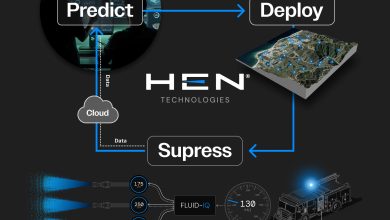
“Hallucinations”—generative AI’s tendency to confidently produce incorrect or fabricated information—continue to make news. Lately, they’ve also embarrassed businesses that trusted fake AI content.
For example:
- A few months ago, major publishers whose business revolves around their reputation as trustworthy news sources published a summer reading list in which most of the recommended books were invented by a chatbot. The writer generated the list using a consumer AI tool, without taking the time to verify the output.
- In July, a federal judge ordered two attorneys representing MyPillow CEO Mike Lindell in a Colorado defamation case to pay $3,000 each, following the discovery that that their legal filing cited non-existent cases – the latest of many cases in which attorneys tried to cut corners on their research using AI.
- One roundup of hallucinations in business cites customer service chatbots citing non-existent company policies or discounts and an AI-generated HR background-check on a professor inventing a sex scandal about him.
These sorts of errors create substantial legal and reputational risks.
While hallucinations can be annoying in the context of consumer use of AI chatbots, businesses incorporating AI into daily work processes must take them more seriously and build in more safeguards. That’s particularly true of any business adopting AI agents capable of executing multi-step processes with minimal supervision.
Yet I believe that focusing on hallucinations misses the point. Companies obsess over reducing these errors, deploying costly fine-tuning and reinforcement learning techniques to minimize mistakes. But the real existential threat facing AI agents isn’t hallucinations – it’s irrelevant and low-quality data.
Here’s the contrarian truth: hallucinations are the symptom, not the disease. AI agents hallucinate primarily because they lack structured context, clear boundaries, and relevant data to guide decision-making. While everyone chases hallucination fixes, few are tackling the root issue: feeding their AI irrelevant, outdated, or noisy data. Until this changes, AI agents will remain unreliable copilots rather than the transformative assets businesses desperately need.
To be clear, avoiding hallucinations in consumer chatbots is very challenging, which is why the problem has not been solved yet. But if you are building business applications, as I am, hallucinations can be minimized to the point where they become a non-issue.
Irrelevant Data: The Silent Killer
Irrelevant data contaminates the decision-making process of AI agents by providing false context. Imagine an e-commerce AI agent predicting demand trends based on two-year-old data or consumer patterns from an unrelated market segment. This irrelevant context creates misleading predictions, leading companies to stock wrong inventory, misjudge marketing spends, or incorrectly forecast sales targets.
In finance, irrelevant data could mean basing investment decisions on economic indicators that no longer reflect current market dynamics. A hedge fund using outdated or overly broad data streams could end up betting millions on misread market signals—an expensive lesson in the importance of timely, relevant data.
Data Isn’t Static—It’s a Living Ecosystem
Data should be seen as an ecosystem rather than a static resource. It requires continuous ingestion, filtering, adaptation, and contextualization. Just as ecosystems evolve, so must your data inputs and management strategies. Continuously refining and curating your data feeds ensures your AI agents are working with accurate, actionable context.
Specialized AI Agents Outperform General AI
A fundamental misunderstanding many enterprises hold is the belief that general AI models like ChatGPT will solve all problems equally well. They won’t. Real-world deployments consistently demonstrate that specialized, finely-tuned AI agents built on relevant, context-specific data far outperform generic models.
Consider cybersecurity: A general AI trained broadly might miss nuanced attack patterns specific to a particular organization or industry, whereas a specialized AI agent—trained rigorously on domain-specific threat intelligence—will identify and neutralize threats more effectively.
Getting AI Right: Structured Context and Real-Time Adaptation
To overcome AI’s real crisis, organizations need a structured, disciplined approach to data:
- Prioritize Relevance: Ensure every dataset fed to your AI agent directly supports the agent’s specific business objectives.
- Continuous Adaptation: Implement real-time data ingestion pipelines to maintain data freshness and contextual relevance.
- Specialization Matters: Develop specialized AI agents designed explicitly for your industry’s unique challenges, data types, and decision-making processes.
Solve the Disease, Not Just Symptoms
Businesses must stop treating hallucinations like the disease. The true disease is irrelevant data, poisoning AI agents at their very core. Until enterprises address this head-on—investing in continuous, real-time, structured, and specialized data strategies—AI’s promise will remain largely unmet.
Hallucinations will naturally reduce as structured context and relevant data increase. Fix the data, and your AI agents will finally deliver on their transformative potential.


